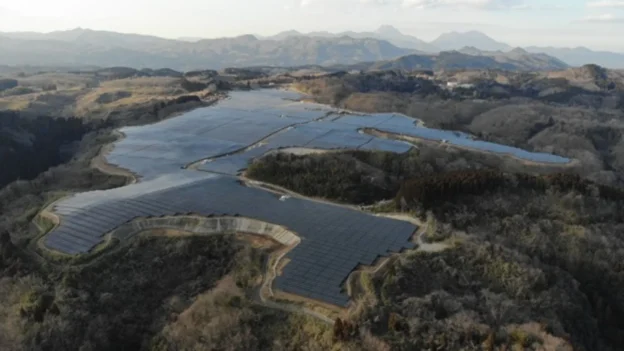The Japanese subsidiary of the Sonnedix Group has begun construction of its first battery energy storage system(BESS) in Oita Prefecture. This 125 MWh project will be connected to an already operational 39 MW photovoltaic plant, allowing for more efficient and flexible management of the solar energy generated.
Energy storage with smart batteries
Located adjacent to an existing solar plant, the storage system will allow energy to be stored during peak production and released when demand requires it. This approach improves grid stability and makes solar a manageable and predictable option. The project features Tesla Megapack batteries, which are renowned for their ability to be integrated into large-scale renewable generation systems.
The development is led by Toshiba Energy Systems & Solutions Corporation, which is acting as the EPC contractor. Tesla Japan GK is supplying the BESS system, while Osaka Gas Co., Ltd. will be responsible for marketing the stored energy. This collaboration reflects a strategy of vertical integration between energy generation, storage and distribution.
The project has been refinanced through a ¥21.4 billion non-recourse credit facility, managed by MUFG Bank. This financial structure aims to optimize the project’s capital and ensure its long-term economic viability. This decision reaffirms Sonnedix’s vision of sustainable growth in the Japanese market.
With this initiative, Sonnedix Japan is setting a new course in its strategy of diversifying into hybrid solutions that combine renewable energy with storage. While its historical focus has been solar generation, the company is expanding its portfolio to a broader spectrum of clean and adaptive technologies.
The Oita project reinforces Sonnedix’s role as a key player in the Japanese energy transition. Sonnedix Japan currently operates 25 solar plants in the country, with a total controlled capacity exceeding 500 MW. Globally, the Sonnedix Group manages a portfolio in excess of 12 GW under development, construction and operation.
Axel Thiemann, CEO of Sonnedix Group, stressed that battery systems will continue to be a key part of creating a more balanced and flexible energy portfolio. For his part, Tomomichi Kageyama, CEO of Sonnedix Japan, stressed the importance of local knowledge and strategic alliances to achieve sustained growth and support the decarbonization of the region.
Work began in October of this year and the system is expected to enter commercial operation in November 2026. This schedule reflects Sonnedix’s commitment to the orderly and efficient development of critical infrastructure for the energy transition.
Source and photo: Sonnedix

